Social media working as efficient communication medium on terrorism
November 6, 2016
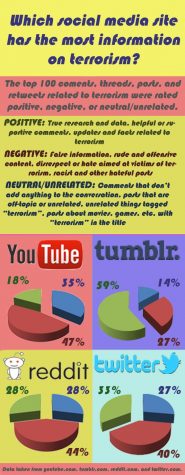
Videos of the Paris attacks were uploaded to Youtube almost immediately. The Orlando shooting was shown to many in real time through Snapchat. News of ISIS attacks are updated constantly on Twitter. There is no doubt that social media and terrorism have a strong link, however, the debate falls on whether that is positive or negative.
As social media becomes a part of everyday life, it is also beginning to infringe on communication about very serious topics like the presidential election, prejudice, and arguably one of the most commonly seen: terrorism. Despite the occasional misinformation and the often graphic or offensive content posted about terrorism on social media, the quick access, eyewitness accounts and lack of censorship outweigh the negatives that the internet brings to the table.
A bittersweet side to the internet is the lack of censorship it has when it comes to many social media platforms. It is easy for accounts to be anonymous and often difficult to get them flagged or reported. Although this seems, to put it lightly, terrifying, it has its major perks when it comes to free speech.
Senior Daniel Onufer said, “I wouldn’t call [my social media] anonymous, because I have a username for all of [my] accounts, but they’re not linked to my person in any way. So if someone is like, ‘Hey you shouldn’t joke about that!’ It’s like, honestly, whatever. You don’t know me, you don’t know what I’ve got to say.”
So if someone is like, ‘Hey you shouldn’t joke about that!’ It’s like, honestly, whatever. You don’t know me, you don’t know what I’ve got to say.
— Daniel Onufer
When it comes to sensitive topics like terrorism, freedom of speech and uncensored thought is crucial to understanding the situation. It can become very disheartening to scroll through page after page of racist and insensitive Reddit posts written by 12-year-olds, but without that risk, communication about terrorism would likely never be as accessible nor as honest as it currently is.
A certain degree of anonymity provides a false sense of security that allows people the peace of mind to post freely and provide new insight and views on the subject. In addition, it can also provide true security and anonymity that allows photos, videos and documents to be shared with the public that concern the public, when they might not have been before.
In her article titled, “I’m right, you’re wrong, and here’s the link to prove it: How social media shapes public debate,” author Collette Snowden wrote, “Now, within minutes of any event, announcement or media appearance, we are able to get those perspectives thousands of times instantly via social media. There are constant reactions and debates…” Not only are the majority of social media websites unmediated, but they can also provide information faster than any other news medium.
If a witness of a terrorist attack has access to a smart phone, tablet, or computer at the time of the event, they can immediately inform the rest of the world of what is going on. Videos and photos can be shared instantly, giving an in-depth look into what the victims saw.
After the terrorist attacks focused on Charlie Hebdo in France, videos of the shooting and the streets outside emerged rapidly, sharing the event with the rest of the world. Because of these videos and their impact, “Je suis Charlie” was able to quickly provide support to victims and their families, as well as fighting against the terrorists’ ideals.
In a special report for Scientific American, social psychologists Kevin Dutton and Dominic Abrams commented that the best way to combat the fear that terrorism brings is by, “bridging the toxic divide of mutual distrust by celebrating broader social identities.” They spoke about how ignorance and fear of other cultures is a big part of both what drives terrorists, and what allows them to cause so much panic even when they’re not in action.
The internet is a vast and diverse place, full of glimpses into nearly every culture in the world. According to the Pew Research Center, 74 percent of all internet users are active on social media, which shows that a large portion of the world is very likely reacting to and posting about terrorism on social media when it happens.
Sometimes people actually do take stuff seriously online.
— Dan Onufer
This diversity allows not only the user’s views to be seen, but everyone else’s, as well. A Twitter account from Paris will have a different opinion on the Brussels attack than a Youtuber from Texas or a blogger from Tokyo.
Xenophobia contributes to terrorism and the effects it has on a culture, and the best way to overcome a phobia is being exposed to it constantly. Frankly, there’s nowhere else where so many opinions, ideas, and thoughts from so many places and people can come together in one space and using that platform to talk about pressing issues like terrorism should be expected.
Despite the obvious benefits of social media when it comes to communicating about terrorism, it still has its issues. Arguably the most common complaint social media faces about communication is the amount of offensive content on the internet. In the last year especially, memes about 9/11 have become especially common, which many find to be extremely insensitive. In addition, racism can be very common on certain websites, adding fuel to the flames.
Onufer commented, “A lot of people [on the internet] kind of just go for reactions. They just lash out onto whatever they can grab onto first. I’ve noticed for the Paris attacks, before they had even found anything, people were saying, ‘Oh it’s a Muslim, it’s got to be ISIS!’, y’know? They didn’t really try to think logically through it, they just jump to conclusions. I think everybody… with social media needs to calm down sometimes to actually think about what they say.”
The truth is, offensive content exists everywhere. Terrorism in itself, is offensive content, and refusing to acknowledge it or witness it only allows more ignorance and more fear to grow. Censoring or ignoring the content online will do nothing to help the situation. Obviously, it can be painful and angering to see, but if that is the price of immediate, diverse, and eyewitness news of terrorism, then it is worth it.
Terrorism is something that despite being horrible in every form, needs to be talked about and needs to be acknowledged. In today’s communication, social media is a great way to start and add to conversations on it, as well being informed and up to date on it. It allows completely free speech with much less risk of censorship than any other news medium, as well as providing extremely fast and diverse facts and opinions. The more posts that are made and videos uploaded and photos shared, the more everyone who views them will know about terrorism and how it affects their lives and the lives of others.
Onufer said, “Sometimes people actually do take stuff seriously online.”


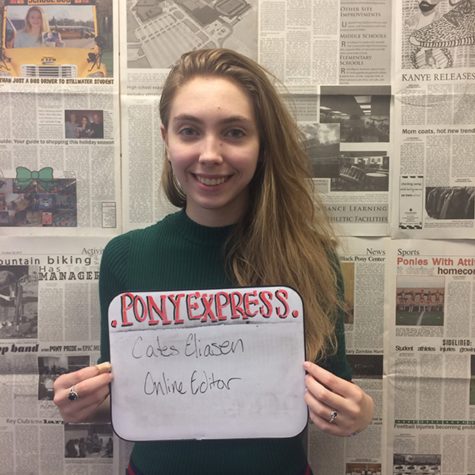


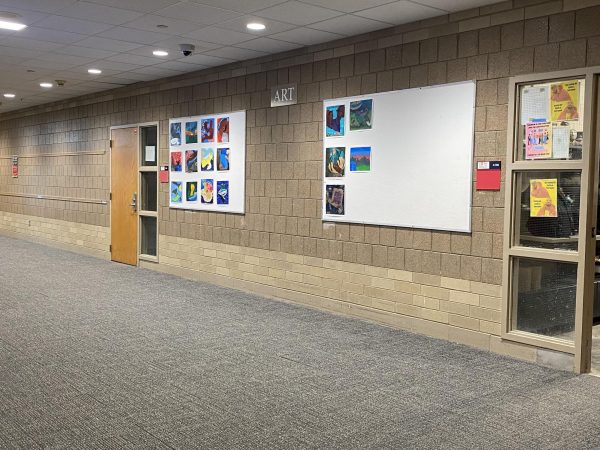
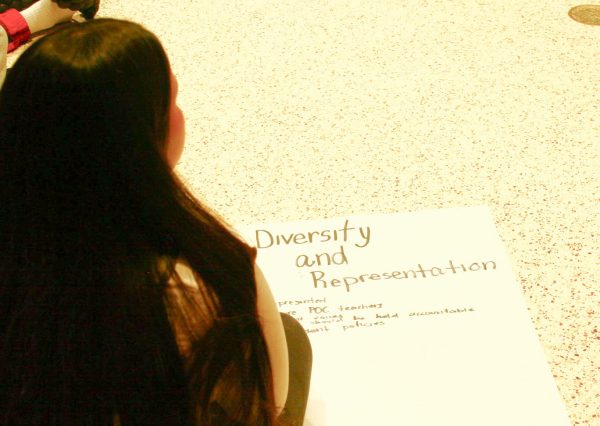
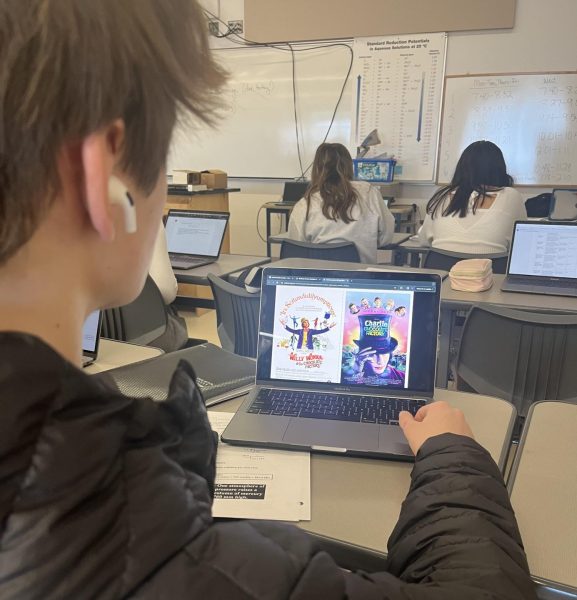

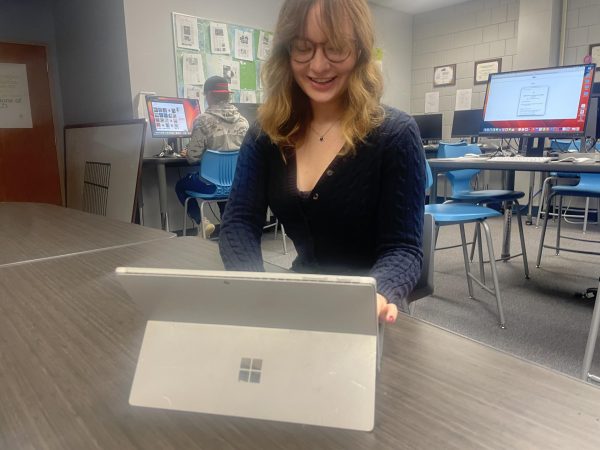
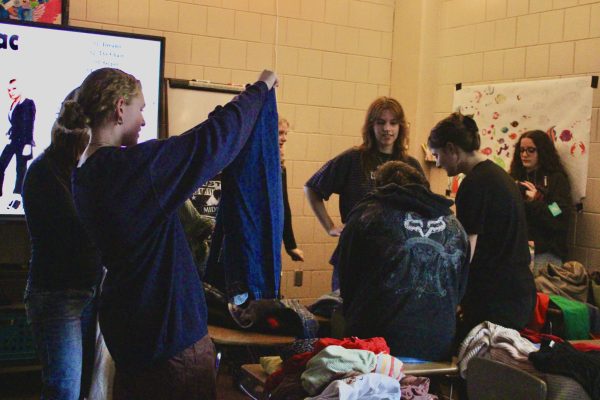
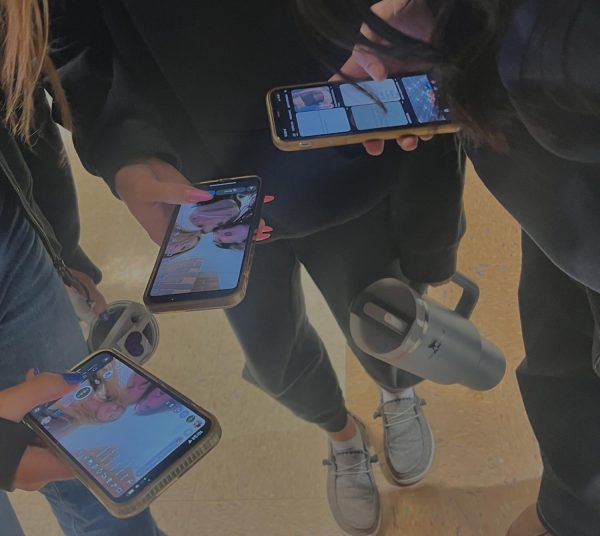
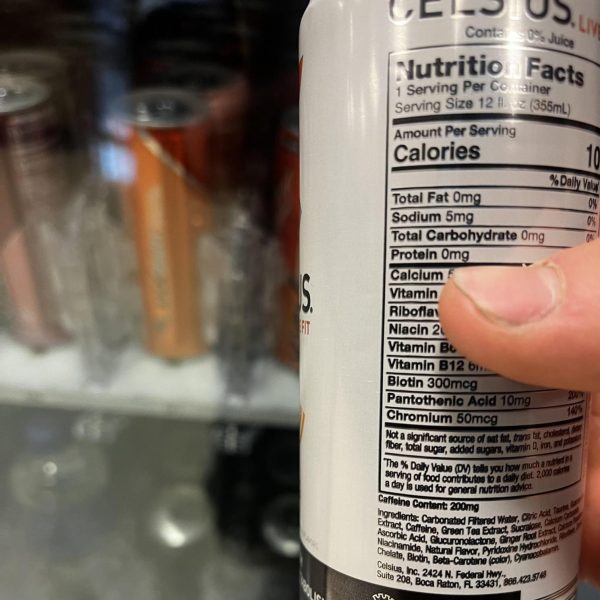
Quinn Kuslich • Nov 22, 2016 at 6:03 pm
This article speaks the truth. Terrorists can access anything and anyone at their most vulnerable and us social media to easily spread terror.